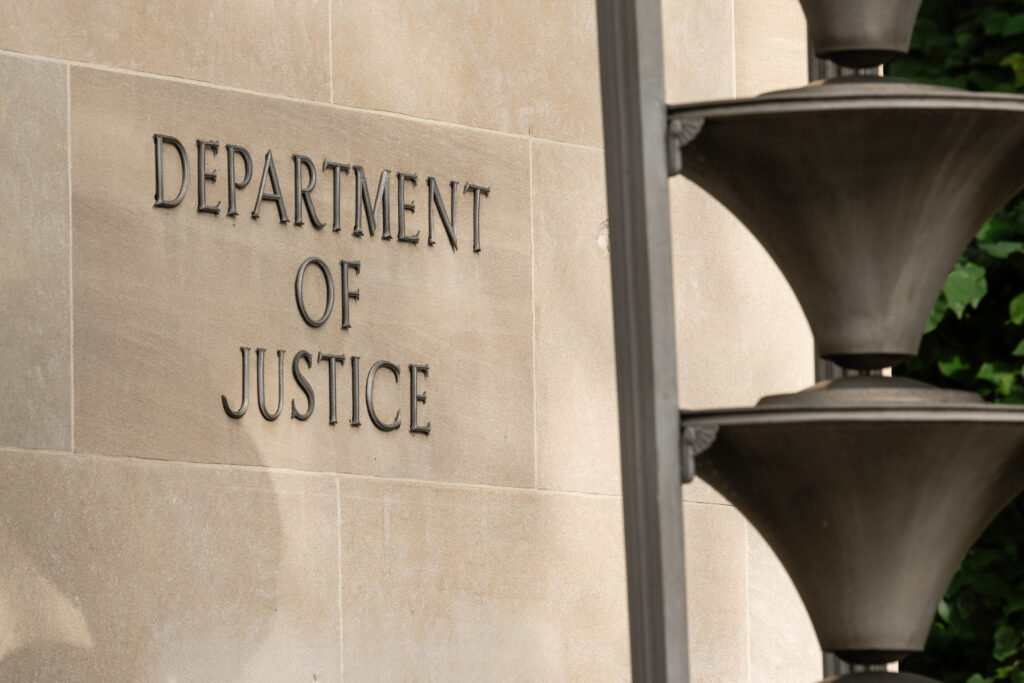Oregon Rejects DOJ’s Request To Share Private Voter Data, Citing Concerns of Unlawful Use

In a detailed letter, Oregon Secretary of State Tobias Read (D) rejected an offer to meet with prosecutors in the U.S. Department of Justice’s (DOJ) criminal division to discuss a potential agreement to share private voter data with the federal government.
As part of the DOJ’s recent effort to obtain sensitive voter data from every state, prosecutors from the department’s criminal division have contacted some states requesting a meeting “to discuss a potential information-sharing agreement” to feed the department private voter information to help assist its hunt for voter fraud.
“With your cooperation, we plan to use this information to enforce Federal election laws and protect the integrity of Federal elections,” reads the email sent July 10 by Scott Laragy, principal deputy director for the executive office for United States attorneys, and Paul Hayden, senior counsel in the DOJ’s criminal division.
In his response to Laragy and Hayden, Read explained that the U.S. Constitution “specifically tasked the states, not the federal government” with administering elections. Read added that he does not trust the Trump administration to protect the private data of citizens, citing instances of high-profile leaking of classified data and the gutting of federal agencies.
“I have no interest in sharing data with an administration that is willfully violating judicial orders and trampling on constitutional rights and responsibilities,” Read wrote in his response. “Nor do I wish to share data with an administration that appears to take glee in snatching people off the streets without requiring its agents to properly identify themselves or provide arrest warrants, or with an administration whose agents wait outside of daycare centers, school yards, and courthouses to improperly detain and deport Oregonians.”
Read further clarified that any voter fraud or election violations uncovered by his office would be referred as criminal cases to Oregon’s Department of Justice, rather than the DOJ and emphasized that Laragy and Hayden “cite no legal authority for your information-sharing request, and none appears to exist.”
State election leaders and voting rights experts have scrutinized DOJ’s recent demands and requests to access private voter data — including state voter registration rolls. DOJ’s voting section — headed by Maureen Riordan, who previously worked for the anti-voting law firm the Public Interest Legal Foundation — sent letters to at least 20 states demanding access to voter rolls and proof of compliance with federal voting laws. But it is not clear DOJ has the legal authority to access such data in every state.
“Most of the letters are very vague about why the DOJ is asking for this data,” Justin Levitt, a constitutional law scholar and a former deputy assistant attorney general in the DOJ’s Civil Rights division, recently told Democracy Docket. “Most of these letters cite generally HAVA and the NVRA. That’s not good enough. HAVA and the NVRA have very particular requirements for state and local jurisdictions.”
None of DOJ’s letters explain why it is seeking to collect private voter data from every state, nor how it plans to use that data.
“Americans are right to be suspicious of these broad, lazy requests for their private voting data,” Read said in a statement to Democracy Docket. “We aren’t fooled: this administration wants to use this data, data they have no legal right to, to silence the people and undermine our elections. Unlike every president before him who respected our proud tradition of free, fair elections, this president is clearly scared of Americans holding him and his followers accountable at the ballot box.”